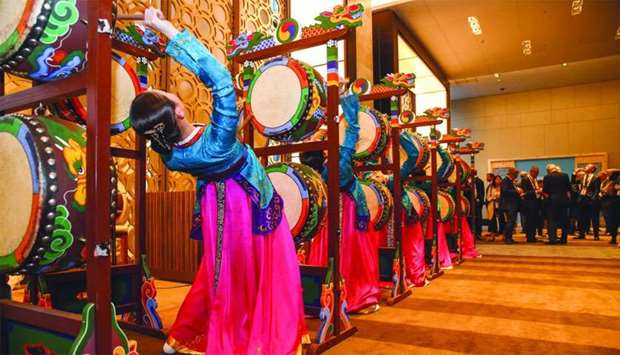Aviation is the business of freedom. It enables globalisation. Since 1990, on average, globalisation has lifted 130,000 people a day from poverty. The more people connect through flying, the greater the benefits to all the people of this world.
This message reverberated throughout the COEX Convention Centre in Seoul early this week, as fears of a full-scale trade war looms large over the global economy, threatening to compromise the value aviation industry creates.
The leaders of the global aviation industry who met in the South Korean capital from June 1 to 3 want policymakers and governments around the world to hear the message loud and clear — that for aviation to be a catalyst of prosperity, borders must be open to people and trade.
Creeping protectionist or isolationist political agendas are on the rise, cautioned Alexandre de Juniac, IATA director-general and CEO, who urged the industry captains to work together to secure aviation’s future as the "safe, secure, efficient and sustainable" business of freedom.
Obviously, de Juniac and the global aviation community are concerned over the “deteriorating” business environment for airlines due to rising fuel prices and a substantial weakening of world trade.
This year will be the tenth consecutive year in the black for the airline industry. But margins are being squeezed by rising costs right across the board — including labour, fuel, and infrastructure. Stiff competition among airlines keeps yields from rising, he noted.
Weakening of global trade is likely to continue as the US-China trade war intensifies. This primarily impacts the cargo business, but passenger traffic could also be impacted as tensions rise. Airlines will still turn a profit this year, but there is no easy money to be made.
Perhaps this is a key reason why IATA had announced a downgrade of its 2019 outlook for the global air transport industry to a $28bn profit (from $35.5bn forecast in December 2018). That is also a decline on 2018 net post-tax profits, which IATA estimates at $30bn.
The immediate outlook for the Middle Eastern airlines also seems to be bleak as IATA economists led by Brian Pearce expect them to “prolong losses” in 2019 due to the “worsening” in the business environment.
Pearce noted the Middle East region has faced “substantial challenges” in recent years, both to the business environment and to business models. Airlines there are going through a process of adjustment and the announced schedules point to a substantial slowdown in capacity growth in 2019.
Middle Eastern airlines will deliver a combined net loss of $1.1bn, slightly worse than the $1bn loss in 2018, which equates to a $5.01 loss per passenger and a negative net margin (-1.9%).
Undoubtedly, it’s a solid profit under challenging conditions. Passenger demand is robust. But trade wars and protectionist measures are taking their toll on the cargo business. And rising costs for fuel, labour and infrastructure are squeezing margins as well.
The intensification of the trade war between the United States and China has seen cargo demand drop across the airline industry, with the downward trend expected to continue.
Growth for that segment is forecast to be flat this year, after rising 3.4% in 2018 and 9.7% the year before that.
Freight operators are bracing for more disruption as tensions between Washington and Beijing ratchet up, and trade experts warn that declining shipments — worsened by Brexit jitters and simmering tensions in the Middle East — indicate a slowdown in global growth.
"If we see a further deterioration and tariff increases, there will be further damage to world trade, de Juniac said as he sees 2019-2020 to be "clearly a difficult year for world cargo."
Goods valued at $6tn are exported by aircraft each year, according to IATA, accounting for 35% of the value of world trade. Air freight companies have already seen revenue fall due to declining shipments of high-tech goods such as semiconductor chips and products used in just-in-time manufacturing.
Even as they grapple with US-China tensions, cargo carriers face a host of other concerns that could spell trouble, Bloomberg said in a dispatch.
Britain’s exit from the European Union has pushed some companies to shift or slow production and stockpile goods. Economic turbulence in Turkey and tensions in Iran have cut into regional trade.
After decades of globalisation and the opening up of borders, trade policy is now heading down a more restrictive path, industry analysts say. This has recently extended to the introduction of explicit tariff measures on a range of traded goods.
While the bulk of the tariff measures implemented to date have largely been between the US and China, the threat of a global trade war is certainly rising.
A trade war is not good news for the air transport industry and has the potential to adversely impact both air freight and passenger demand.
As de Juniac put it, “Flying is freedom. The society we live in is better for it.”
Therefore it is essential that we protect that freedom — at least for the sake of future generations.
*Pratap John is Business Editor at Gulf Times.


